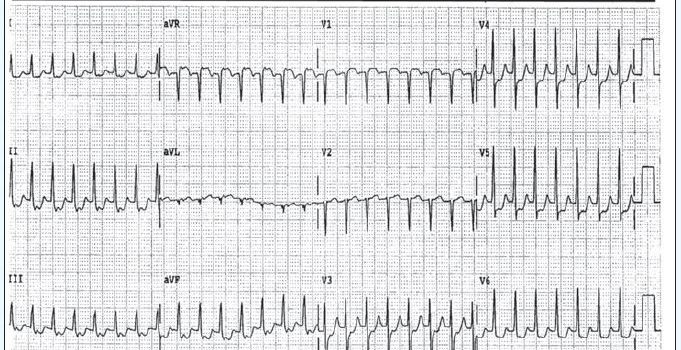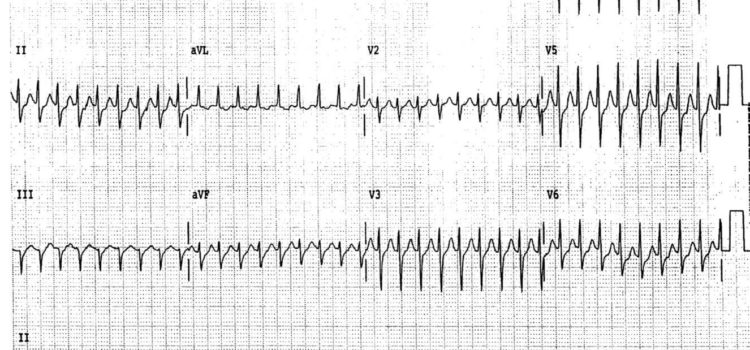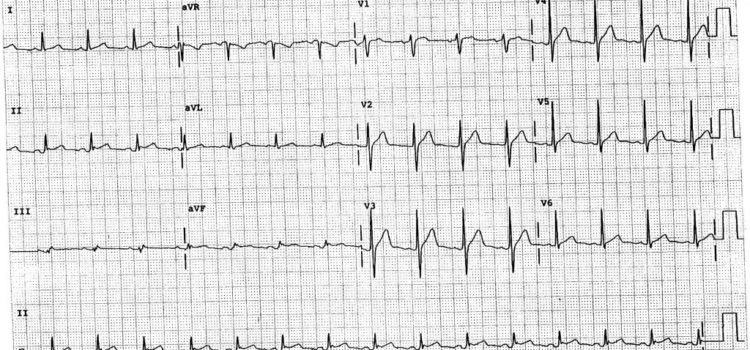A 42-year-old woman with a history of anxiety presents, complaining of intermittent palpitations over the past 2 weeks. She says she has not taken any medication and denies chest pain, shortness of breath, diaphoresis, fever, or dizziness. Upon exam, you find: General: Alert and oriented X 3 Lungs: Clear to auscultation bilaterally Cardiovascular: Regular and tachycardic without murmur, rub, or gallop Abdomen: Soft and nontender without rigidity, rebound, or guarding Extremities: No pain or swelling, …
Read More


